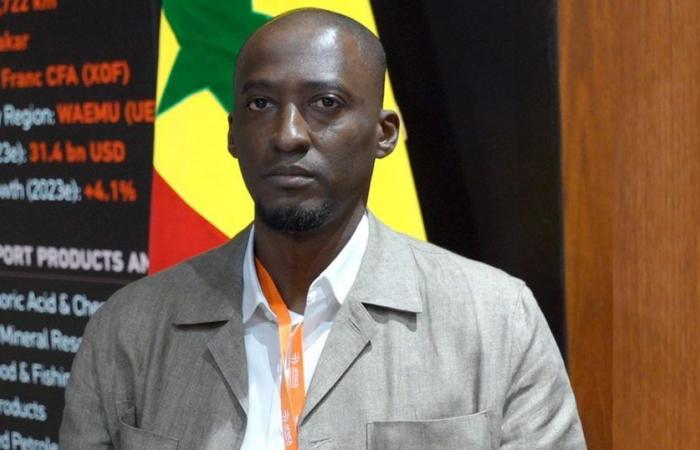A large Senegalese delegation attended the 7th edition of the International Africa Development Forum (FIAD), including leaders of state institutions, economic operators and the media. Among them, Bakary Séga Bathily, new CEO of APIX Senegal. In this interview with Le360 Africa, he discusses the assets and investment opportunities of Senegal, the priority sectors for investment and the systems put in place by APIX to support investors.
He was also the host of the session dedicated to Senegal at the level of the Investment Market during which he presented the assets and investment opportunities that his country offers.
If Senegal has become an oil producer in recent weeks with the effective start of exploitation of the Sangomar offshore deposit, and will soon be a producer of natural gas with the imminent start of the Grand Tortue Ahmeyim field, the new Senegalese leaders do not intend to neglect other sectors, in order to avoid making the same mistake as many African hydrocarbon-producing countries, which have become rentier states dependent almost exclusively on hydrocarbons.
Read also: These 7 African countries are expected to record average growth rates above 6% in 2024-2026
In this regard, Bakary Séga Bathily, CEO of APIX Senegal, stressed that his country wishes to attract investors in many sectors, particularly agriculture and livestock, but also in everything related to industry, in particular the processing of agricultural products and local raw materials.
As such, he launched an appeal to Moroccan and foreign investors present during FIAD 2024 to come and invest in Senegal, “a land of investment”, harboring significant potential and offering significant opportunities.
As such, he explains the new vision taken under the era of the new president of Senegal, Bassirou Diomaye Faye, who advocates food sovereignty. As such, “we expect a lot of investment in the field of agriculture, especially in the supply of water to irrigate the land and increase agricultural production”.
In addition to the agricultural sector where Senegal aims for self-sufficiency in several areas, there is also the fishing sector with 700 km of coastline which presents investment opportunities in the fishing sector. As such, he explains that faced with the scarcity of fish, “aquaculture constitutes an alternative and an opportunity to develop offshore aquaculture with investments in fisheries”.
Read also: Senegal: Economic growth projected at more than 10% in 2025, according to the IMF
Also at the breeding level, the State, through the Doly Ranch of 80,000 hectares, wishes to attract investors in the sector in order to have a controlled and secure breeding system, capable of ensuring more independence in the country’s supply of meat, milk, etc. “with investments in the field of fodder, much awaited at this level.”
In addition to the primary sector where the State intends to invest heavily and attract local and foreign investors, the new Senegalese regime also wishes to develop the industrial sector at a time when the country has just joined the circle of oil producers. On this point, explains the general director of APIX, “the start of gas production is an opportunity to reduce energy costs” and stimulate industrial development in all sectors of activity, in particular the processing of agricultural products. and raw materials. The strategy is to replace imports of certain products with local industrial production. Senegal hopes to attract a lot of industrial investment in the processing of local products on site.
Read also: Senegal now an oil producer
To achieve this, the Senegalese State, through APIX, supports potential investors and grants incentives capable of making local production competitive and profitable for investors. To this end, Senegal has set up Special Economic Zones (SEZs). Eight SEZs are planned, three of which are already in development, offering a total area of 2,000 hectares designed to accommodate investors, whether for small or large industries (packaging, agri-food, solar, etc.). Numerous tax incentives are granted to companies that set up in these SEZs with the aim of attracting more investors, creating added value and generating jobs.
Concerning incentives, in addition to tax and customs exemptions, there are facilities granted for obtaining administrative documents, developed land, access to water and electricity, etc. The DG of APIX explains that these incentives are granted according to the sector of activity and the region of establishment, with the obligation to export 50 to 60% of industrial production.
APIX is the sole point of contact for investors. It welcomes, facilitates, guides and supports investors until their project is completed in Senegal.
Par Moussa Diop et Adil Gadrouz
06/30/2024 at 12:43 p.m.






